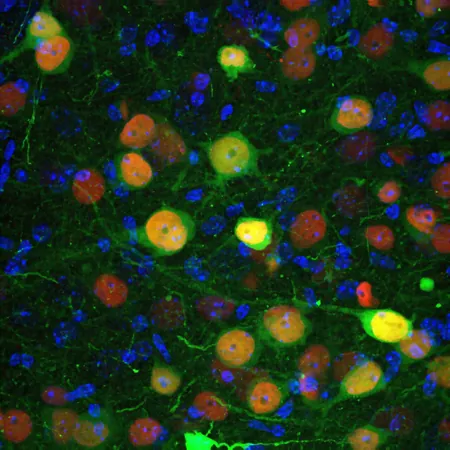
Breakthrough Discovery: Neurons in the Amygdala Linked to Anxiety and Social Disorders Revealed!
2025-07-03
Author: Rajesh
Exciting new research has unveiled a critical group of neurons in the amygdala—a brain region pivotal for emotion regulation—that could be key players in anxiety, depression, and social behavior disorders. A groundbreaking study published in iScience reveals that correcting the balance of neuronal excitability in a specific amygdala area can reverse harmful behaviors in mice.
Conducted by The Synaptic Physiology laboratory, under the leadership of Juan Lerma at the Institute for Neurosciences (a collaboration between the Spanish National Research Council (CSIC) and Miguel Hernández University (UMH)), this study shines a spotlight on the amygdala's intricate role in our emotional landscape.
Lerma states, "While the amygdala's connection to anxiety and fear has been established, we've now pinpointed a unique group of neurons whose imbalanced activity can independently spark pathological behaviors." This revelation opens up exciting avenues for understanding the neural basis of these disorders.
To conduct their research, the team used genetically altered mice engineered to overexpress the Grik4 gene. This alteration increased the quantity of GluK4-type glutamate receptors, resulting in heightened neuronal excitability. These specially developed mice exhibited anxiety and social withdrawal—symptoms strikingly similar to those seen in individuals with autism or schizophrenia.
By normalizing the expression of the Grik4 gene in the basolateral amygdala's neurons, the researchers restored communication with another group of neurons known as "regular firing neurons" within the centrolateral amygdala.
"This simple adjustment was astonishingly effective at reversing anxiety-related and social deficits," notes Álvaro García, the study’s lead author. The team measured the effects using a series of behavioral tests and electrophysiological techniques to evaluate anxiety, depression, and social interactions in these rodents.
Moreover, the scientists extended the same treatment to wild-type mice that exhibited anxiety by nature, which also showed marked improvements.
"This validation enhances our confidence that the neural mechanism we discovered applies broadly to emotional regulation, not just specific genetic models," adds Lerma.
However, the study did find that some behavioral deficits, like object recognition memory, remained unresolved, indicating that areas like the hippocampus may also influence these disorders and require further exploration.
This study sets the stage for novel therapeutic options: targeting specific neural circuits in the amygdala could pave the way for a more focused approach to treating affective disorders, potentially revolutionizing how we address these challenging conditions.



 Brasil (PT)
Brasil (PT)
 Canada (EN)
Canada (EN)
 Chile (ES)
Chile (ES)
 Česko (CS)
Česko (CS)
 대한민국 (KO)
대한민국 (KO)
 España (ES)
España (ES)
 France (FR)
France (FR)
 Hong Kong (EN)
Hong Kong (EN)
 Italia (IT)
Italia (IT)
 日本 (JA)
日本 (JA)
 Magyarország (HU)
Magyarország (HU)
 Norge (NO)
Norge (NO)
 Polska (PL)
Polska (PL)
 Schweiz (DE)
Schweiz (DE)
 Singapore (EN)
Singapore (EN)
 Sverige (SV)
Sverige (SV)
 Suomi (FI)
Suomi (FI)
 Türkiye (TR)
Türkiye (TR)
 الإمارات العربية المتحدة (AR)
الإمارات العربية المتحدة (AR)